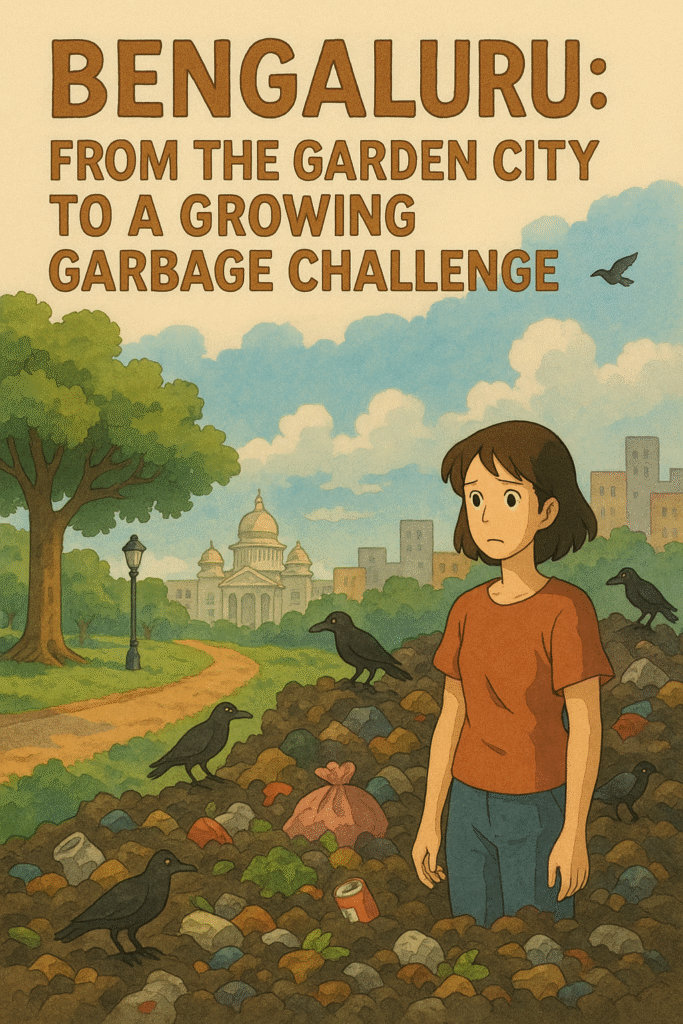Physical Address
18 C Ibbani Harohalli Village
Yelahanka Bengaluru 560064
Physical Address
18 C Ibbani Harohalli Village
Yelahanka Bengaluru 560064

Bengaluru, once celebrated as India’s “Garden City,” is now confronting a pressing environmental dilemma that threatens its green legacy. The city’s rapid urban growth, combined with inadequate waste management systems, has turned many parts of this vibrant metropolis into hotspots of garbage accumulation, posing serious health and ecological risks.
For decades, Bengaluru was admired for its tree-lined avenues, sprawling parks, and clean air. However, today, the city generates over 6,000 metric tonnes of solid waste every day-a figure that continues to rise with its expanding population and booming industries. Unfortunately, the infrastructure to manage this waste has not kept pace, leading to overflowing garbage piles in residential areas and public spaces.
The city’s primary landfill sites, such as Mitiganahalli and Mandur, are overwhelmed and struggling to cope. These sites have become sources of pollution, with toxic gases and leachate contaminating the surrounding environment. Residents living near these landfills frequently report foul odors, health issues, and a decline in quality of life.
Several factors contribute to Bengaluru’s waste crisis:
The consequences of poor waste management are far-reaching. Landfill fires release harmful smoke and particulate matter, worsening air pollution and triggering respiratory problems among residents. Contaminated groundwater from landfill leachate threatens drinking water sources, raising concerns about long-term health impacts.
Moreover, the visual blight and stench from garbage heaps diminish Bengaluru’s urban appeal and impact tourism and local businesses.
Despite these challenges, there is hope. Bengaluru is beginning to explore innovative solutions to reclaim its green reputation:
Every Bengaluru resident can play a role in reversing the garbage crisis:
Bengaluru’s journey from a lush garden city to a metropolis grappling with waste challenges underscores the urgent need for sustainable urban planning. By embracing innovative waste management practices, strengthening governance, and fostering community participation, Bengaluru can revive its green heritage and become a model for other growing cities facing similar environmental pressures.
The city’s future depends on collective action-only then can Bengaluru truly reclaim its title as the Garden City of India.